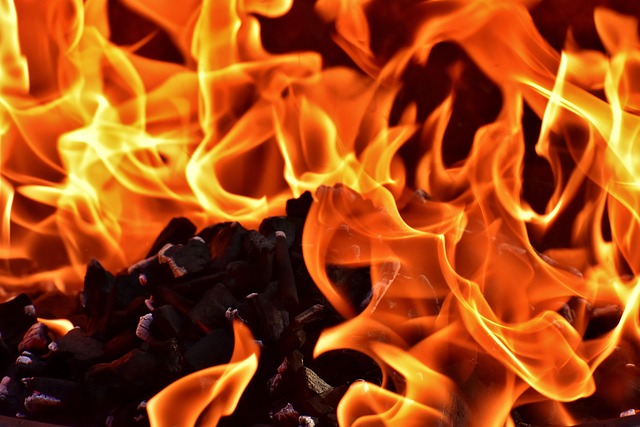When selling a house with fire damage in California, strict disclosure laws demand transparency about previous fires, their causes, and associated repairs, including structural and smoke/water damage. Failure to disclose known fire safety system issues or material defects can lead to legal repercussions, financial penalties, and buyer dissatisfaction. Understanding these rules, communicating openly, and providing accurate documentation are essential for a smooth transaction, protecting both buyers and sellers while adhering to California's disclosure requirements.
In California, real estate disclosure laws are stringent, especially regarding fire damage. When selling a house with fire damage, understanding and adhering to these regulations is crucial for a smooth transaction. This article guides you through the key aspects of fire damage disclosure requirements in California, legal obligations for sellers, the impact of concealment, common exceptions, consequences of non-compliance, and best practices for transparent home selling.
- Understanding Fire Damage Disclosure Requirements in California
- Legal Obligations for Sellers: What You Need to Disclose
- The Impact of Concealment on Real Estate Transactions
- Common Exclusions and Exceptions to Disclosure Laws
- Consequences of Non-Compliance: Penalties and Liability
- Best Practices for Transparent Home Selling in California
Understanding Fire Damage Disclosure Requirements in California

When selling a house with fire damage in California, understanding disclosure laws is paramount to ensure compliance and transparency. The state has stringent regulations that require sellers to disclose any significant incidents or conditions that could impact a property’s value or safety. In terms of fire damage, sellers must divulge details about any fires that have occurred on the property, including the date, cause, and extent of the damage. This includes providing information about structural repairs, replacement costs, and potential residual effects from smoke or water damage during the firefighting process.
California’s disclosure laws extend to revealing any known issues with fire safety systems, such as alarms, sprinklers, or detectors. Sellers are expected to be honest and accurate in their disclosures, providing relevant documents, reports, or estimates to substantiate their claims. This transparency not only protects buyers but also facilitates a smoother transaction process by enabling informed decision-making.
Legal Obligations for Sellers: What You Need to Disclose

When selling a house in California, sellers have strict legal obligations regarding what they must disclose to potential buyers. This includes any significant issues that could impact the property’s value or safety, such as fire damage. California law requires sellers to reveal any known defects or hazards that are necessary for a buyer to make an informed decision.
Fire damage, regardless of its extent, falls under this category. Sellers must disclose information about previous fires, including their cause and the steps taken to mitigate future risks. Even minor smoke damage or charred walls can be significant concerns for buyers, so transparency is crucial. Failure to disclose fire-related issues could lead to legal repercussions and financial penalties for sellers.
The Impact of Concealment on Real Estate Transactions

In real estate transactions, the truth about a property’s condition is paramount for ensuring fair and transparent deals. However, concealment of material facts, such as fire damage in California, can significantly impact the outcome of these transactions. When a buyer is misled or not informed about pre-existing issues like extensive fire damage, it can lead to a web of legal complications and unmet expectations.
Selling a house with fire damage in California comes with specific disclosure obligations designed to protect both buyers and sellers. Concealing such damage not only breaches ethical standards but also exposes the seller to potential lawsuits for fraud. Buyers have rights and expectations, and knowing the true state of the property is crucial for making informed decisions about their investment. Disclosures allow them to assess repairs needed, costs involved, and the impact on the home’s value—all essential factors in a transparent real estate market.
Common Exclusions and Exceptions to Disclosure Laws

In California, real estate disclosure laws are designed to protect buyers by ensuring they have all relevant information about a property before purchasing it. However, there are several common exclusions and exceptions to these rules. One significant exception pertains to properties with fire damage. While the law generally requires sellers to disclose any known defects or issues, fire damage is often excluded if it occurred in the past and has been repaired to local building standards. This exclusion doesn’t mean buyers should be unaware of potential risks; they still need to inquire about the extent of the fire damage and the quality of the repairs.
Another common exception involves natural disasters like earthquakes or floods, where disclosures may be limited due to unpredictable events. Additionally, certain structural issues discovered during a home inspection might not always require disclosure if they are deemed minor or typical for the property’s age. Sellers are generally not obligated to disclose every cosmetic flaw or expected maintenance item. These exceptions highlight the importance of thorough communication between buyers and sellers and professional inspections before finalizing a purchase, especially in cases of selling a house with fire damage California.
Consequences of Non-Compliance: Penalties and Liability

The consequences of non-compliance with real estate disclosure laws in California can be severe, especially for those selling a house with fire damage. Failure to disclose known material defects, such as structural issues or hidden hazards like fire damage, can lead to significant penalties and legal liability.
Buyers have the right to make informed decisions about the properties they purchase. Concealing or misrepresenting these defects can result in lawsuits, monetary fines, and even criminal charges. In cases of selling a house with fire damage, buyers may incur additional expenses for repairs or remediation that could have been prevented if the sellers had disclosed the issue upfront. This not only affects the buyer’s financial situation but also creates a legal precedent for holding sellers accountable for their disclosures.
Best Practices for Transparent Home Selling in California

When selling a house with fire damage in California, transparency is key to navigating disclosure laws effectively. Best practices involve providing comprehensive and accurate information about any pre-existing conditions, including fire damage, to potential buyers. This includes detailing the extent of the damage, any repairs undertaken, and the current state of the property. Early communication can help set expectations and avoid legal complications later on.
In California, sellers are legally obligated to disclose known material defects that could affect a property’s value or safety. For homes with fire damage, this means documenting all relevant details—from the date of the incident to the nature of the repairs made. Offering access to any remaining documentation related to insurance claims or restoration work demonstrates good faith and encourages buyers to make informed decisions without surprises.
When selling a house with fire damage in California, adhering to strict disclosure laws is paramount. By understanding your legal obligations and implementing best practices for transparency, sellers can navigate this process smoothly. Remember that full disclosure not only protects buyers but also helps prevent potential penalties and liability for non-compliance. In the context of selling a house with fire damage, California’s real estate disclosure laws serve as a crucial framework for ethical and compliant transactions.





